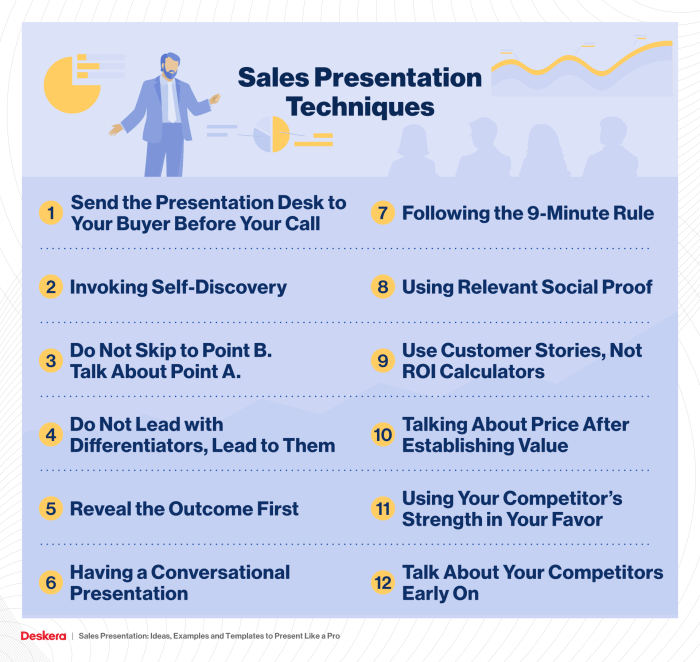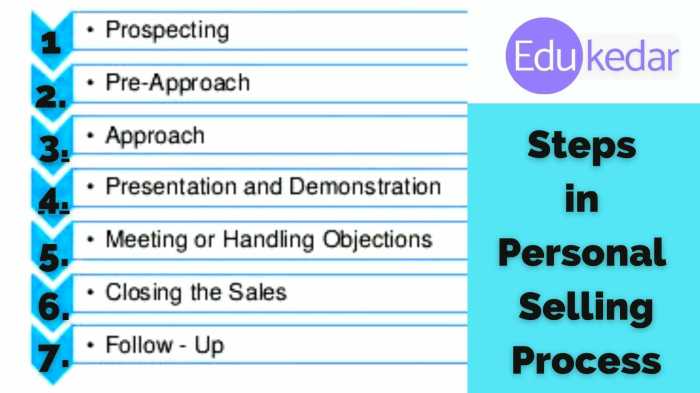Which statement best describes personal selling? This question takes center stage in this comprehensive analysis, delving into the intricacies of a sales technique that fosters one-on-one connections, tailored communication, and enduring relationships. As we explore the unique characteristics, benefits, and challenges of personal selling, we uncover its significance in the digital age and speculate on its future trajectory.
Personal selling distinguishes itself from other marketing and sales approaches through its emphasis on individualized interactions, allowing salespeople to adapt their strategies to the specific needs and preferences of each customer. This highly personalized approach sets the stage for enhanced customer satisfaction, loyalty, and ultimately, increased sales.
Definition of Personal Selling: Which Statement Best Describes Personal Selling

Personal selling involves a direct, one-on-one interaction between a salesperson and a prospective customer. It differs from other marketing and sales methods by emphasizing tailored communication and relationship-building.
Key Characteristics of Personal Selling
- One-on-one interactions allow for personalized communication and understanding of customer needs.
- Tailored communication enables salespeople to adapt their message and approach to each customer’s unique situation.
- Relationship building is crucial for establishing trust, rapport, and long-term business partnerships.
Benefits of Personal Selling
- Increased sales: Personal selling allows for direct persuasion and demonstration of product/service benefits.
- Improved customer relationships: Face-to-face interactions foster trust and loyalty, leading to repeat business.
- Enhanced brand loyalty: Salespeople can effectively communicate brand values and build strong customer connections.
Challenges of Personal Selling
- Time-consuming: Personal selling requires significant time investment for building relationships and closing deals.
- Requires skilled salespeople: Effective personal selling demands a high level of communication, persuasion, and negotiation skills.
- Can be expensive: Hiring, training, and compensating salespeople can represent a substantial cost.
The Personal Selling Process
- Prospecting: Identifying potential customers who have a need for the product/service.
- Qualifying: Evaluating prospects to determine their suitability and potential value.
- Approaching: Establishing initial contact with prospects and building rapport.
- Presenting: Delivering a compelling sales presentation that highlights product/service benefits and addresses customer needs.
- Handling objections: Addressing and overcoming customer concerns or objections.
- Closing: Securing the sale and finalizing the transaction.
Ethical Considerations in Personal Selling, Which statement best describes personal selling
- Honesty and transparency: Salespeople must provide accurate information and avoid misleading or deceptive tactics.
- Respect for customers: Treating customers with dignity and respect, considering their needs and perspectives.
- Avoiding conflicts of interest: Ensuring that personal or financial interests do not compromise professional responsibilities.
The Future of Personal Selling
In the digital age, technology is transforming personal selling. Salespeople now utilize tools like CRM systems, social media, and video conferencing to connect with customers and build relationships. While digital channels offer convenience and efficiency, personal selling remains essential for building trust, understanding customer needs, and closing complex deals.
Essential FAQs
What is the primary objective of personal selling?
To establish personal connections with customers, understand their needs, and persuade them to make a purchase.
How does personal selling differ from mass marketing?
Personal selling focuses on tailored interactions with individual customers, while mass marketing targets a broad audience with standardized messages.
What are some of the challenges associated with personal selling?
Time constraints, the need for skilled salespeople, and potential conflicts of interest.
How is technology impacting the future of personal selling?
Technology is enhancing communication channels, providing data analytics for better decision-making, and automating certain tasks.


